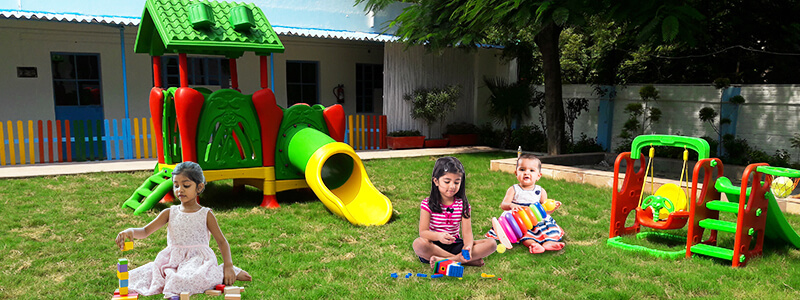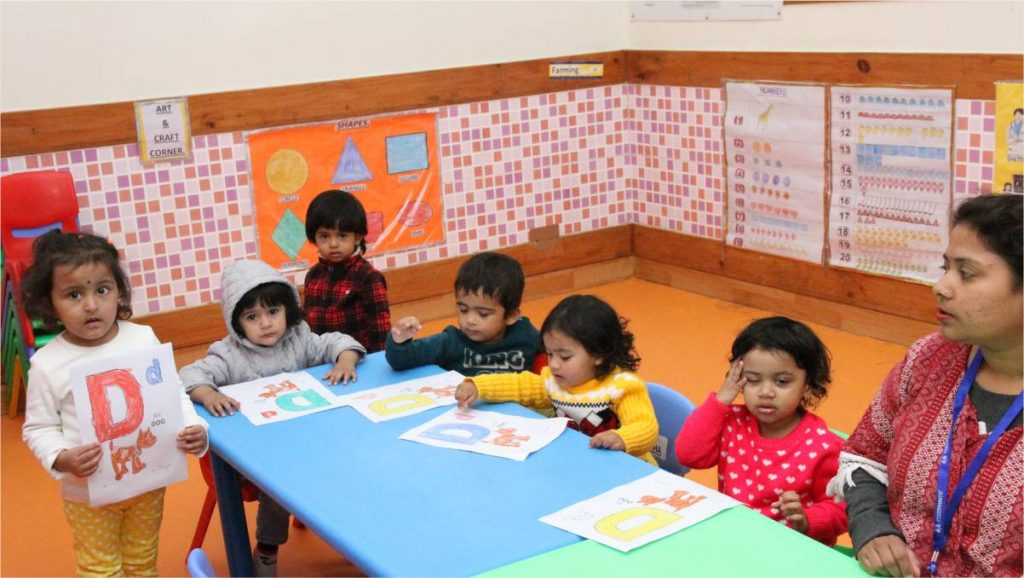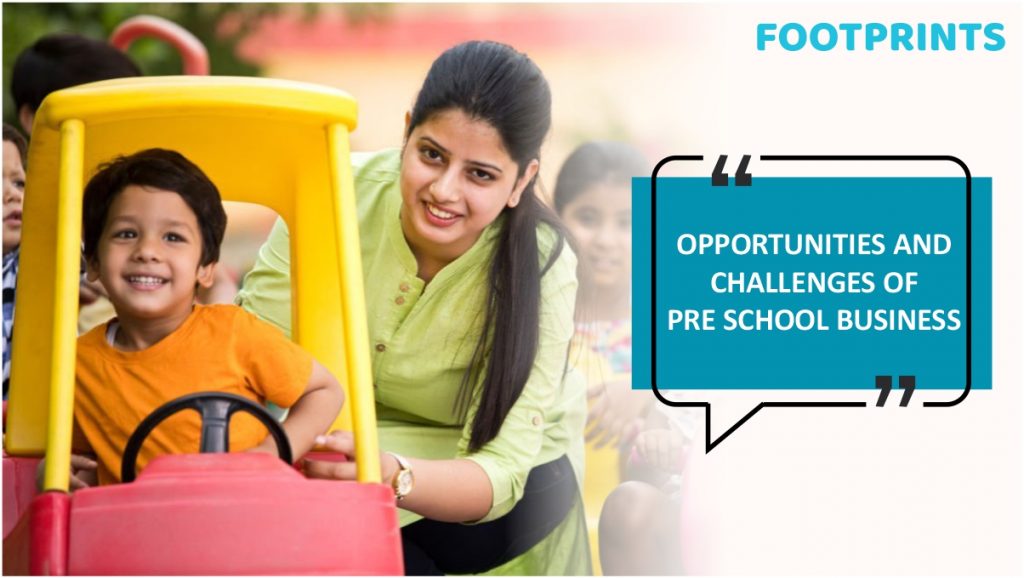
If you are considering starting up a pre school, surely there is a lot on your mind. Here is an effective SWOT Analysis that will help you take an informed decision.
From a macro perspective when it comes to the educational sector per se, India presents an interesting growth story aided by a substantial population of young population. In fact, India with upwards of 15cr children in the age group of 0-6 years is home to one of the largest populations of children. The demands for early education and care have, therefore, led the Indian education sector on a brisk growth track. The preschool education industry itself in India is currently valued at more than 15,000 Crores, growing at a high CAGR of 23%.
Currently, the preschool industry runs on three models. The unorganized sector is made up of local homegrown preschools and constitutes around 70-80% of the market. Organized preschools, operate on a franchisee model and are relatively smaller in number. The third model is the school feeder model with some regular K-12 school starting their own preschools to tap the early toddler market as well.
Strengths and Opportunities of the Pre School Business
The Preschool Industry is driven by a number of factors, primary among them being:
Increasing income and propensity of Indian parents to spend towards education
As more and more families turn nuclear there is a greater emphasis on ensuring children are provided opportunities for interaction and development in a safe and secure environment. Also with the trend shifting towards double-income families, parents are more inclined to spend on the early education of kids than before. Another factor that has aided the growth of preschools in India, especially in the bigger metro cities is the difficulty of getting admissions to K-12 schools. The rigorous admission process as well as the high level of competition in almost every field has forced many parents to ensure their children do not miss out on early learning and development opportunities.
Underpenetrated market especially in Tier II and Tier III towns
Indian preschool market is currently highly underpenetrated with only 17% of the children in the age group of 1.5-4 years attending preschool. The percentage is even lower in the smaller towns where less than 10% of children attend preschool. With professional quality education making its way into preschools and awareness regarding how early education can help in the emotional, physical, and intellectual well-being of children, more and more parents are looking at preschool options for their children.
Improvement in the quality of preschool education
As the market gets more organized, a number of innovative and professional players have made their way into preschool education. There is a greater emphasis on using researched curriculum and modern tools to create an interactive learning environment for young minds rather than simply filling in time. Also, the quality of infrastructure has significantly improved as investments in the sector have increased. Some preschools now sport the latest technology to ensure parents and children stay involved and engaged.

Threats and Challenges
However, the pre school business in India is not without its share of challenges. Apart from the obvious operational challenges, there is also the challenge of dealing with a relatively low level of awareness among parents regarding the importance of early education among young children. Let us look at each of these challenges in greater detail.
Lack of awareness
Indian parents have grown up with the traditional mindset around savings, especially in the middle-income sector. Preschool education in India costs anywhere between Rs. 60000-80000 on an annual basis and not many parents are still sufficiently aware of the benefits to consider this as a worthwhile investment in their child’s future. While awareness is gradually increasing, in the short run it continues to remain a challenge, especially in the smaller towns and cities where disposable incomes are not so high and penetration rates are lower.
Operational challenges
Lack of quality teaching staff and training facilities
The biggest challenge faced by preschools in the unorganized sector is the lack of quality teaching staff. Training is another big challenge as there is a lack of good trainers and training material in India that can help teachers understand how to work effectively with tools that have been developed especially for the development of young minds.
Most preschools maintain a teacher-student ratio of 1:10, which means that you need a higher number of teachers as compared to regular schools. Since the pay scales are not very high it is very difficult to attract quality teachers.
Teacher training is an expensive proposition and since attrition rates are high it is difficult to ensure ongoing training for further development
Curriculum
A big challenge for homegrown schools is the lack of development of an effective curriculum. A curriculum that is not research-based and well-designed automatically results in a lack of substantial learning for students. From the business perspective, in turn, it leads to a lack of any differentiation for the school, which impacts its admissions and profitability.

Sales and Marketing
A major limiting factor for unorganized schools is the high cost of sales and marketing. With schools cutting corners on this cost on account of limited resources, they are unable to attract enough leads to the school and hence viability becomes a huge issue. The franchisee operations tend to significantly gain on this aspect where they are provided sales and marketing support by the principles. In fact, a franchisee stands to benefit tremendously on account of Increased leads, higher visit conversions as well as hands-on customer support offered by the parent institution that goes a long way in impacting the profitability of the business. With advertising costs going through the roof, there are significant economies of scale that accrue to a franchisee operator on account of a large marketing budget of the parent institution, which is not available to a small individual operator.
With the sizeable brand advantage, the franchisee gains a significant competitive edge that shows on its bottom line.
Rentals
With real estate prices burgeoning, rentals are becoming the single biggest recurring expenditure and can in fact become the make-or-break factor for many unorganized pre school business. The high rentals force preschools to charge higher from parents which in turn forces many parents to rethink the investment required
Many of these challenges can be effectively met through the adoption of the franchisee model wherein organized players lend their brand name and teaching as well as technical expertise to people looking at entering the pre school business. As all the above factors positively impact admissions, the franchisee stands to gain with reduced breakeven periods.

Amita is an experienced educator with over 30 years of experience. She has an outstanding understanding of child development, having worked with various age groups for prestigious businesses. She has been dedicated to handling Footprints’s Curriculum and Delivery department for the past decade. Amita’s credentials include being one of India’s few HighScope Curriculum certified trainers and volunteering as a course leader for Landmark Education, the world’s largest training firm.


